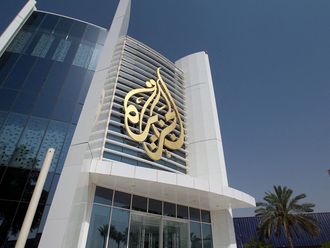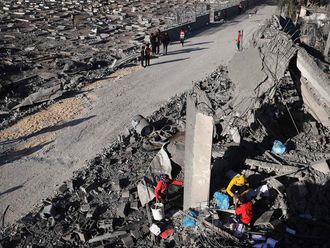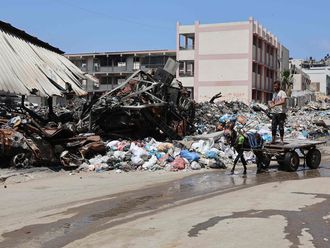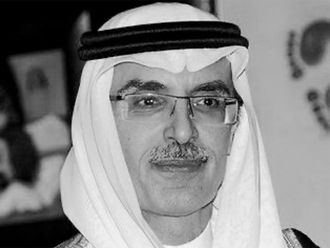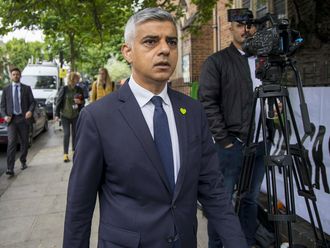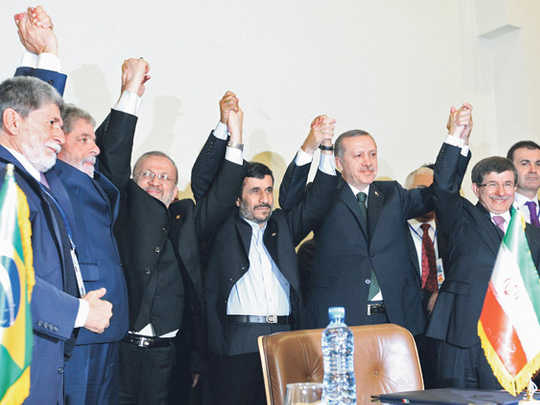
Washington: Iran on Monday surprised much of the world by agreeing to a nuclear fuel swap with Turkey and Brazil. The deal is similar to one that the US has been pressing Tehran to accept for months — so Washington will be happy with this development, right?
That's unlikely. From the US point of view, one big problem is that Iran continues to amass more and more low-enriched uranium, and it has begun boosting some of this stockpile to an enrichment level it hasn't approached before. Thus, an Iran nuclear fuel swap today might constrain the country's nuclear programme much less than it would have last October.
"There is less to Iran's agreement than meets the eye," writes Jeffrey Lewis, director of the Nuclear Strategy & Nonproliferation Initiative at the New America Foundation, on his blog ArmsControlWonk.com.
‘Serious concerns'
Secretary of State Hillary Rodham Clinton appears to have been caught off guard by Brazil and Turkey's diplomacy and by the new weight of secondary powers more generally. On Friday she predicted the Brazilian-Turkish mission to Tehran would fail and have no impact on US efforts to slap new sanctions on Iran over its nuclear programme. But by Monday, the US was scrambling to assess the impact of the diplomatic breakthrough on momentum for sanctions.
Russian Deputy Prime Minister Sergei Ivanov went further than the US. After a speech in Washington on Monday, he said he would not be surprised, despite the Brazilian-Turkish initiative, if the Security Council resolution that the US has been promoting "passed for a vote in the very near future."
Ivanov said he rejected any "link" between the push for a fourth round of sanctions on Iran and the latest diplomatic initiative by two non-permanent members of the Security Council.
Ivanov said he could envision both paths — sanctions and Monday's enriched-uranium deal, moving forward. And in a year's time, the decision will be that "Iran is on the right track, and [a new Security Council] resolution will not be forever."
But in any case, he insisted, the Iran issue "will still be in the ‘Big Six' countries' hands, definitely" — meaning the five permanent Security Council members plus Germany, or the so-called P5+1.
Under Monday's deal, Iran would ship 1,200 kilograms of its low-enriched uranium to Turkey for safekeeping. In return, it would receive ready-made fuel rods, enriched to a level of 20 per cent and capable of powering the Tehran Research Reactor, which Iran says is a crucial source of medical isotopes.
Turkish Foreign Minister Ahmet Davutoglu said the deal means Iran has opted for a constructive approach.
"There is no ground left for more sanctions or pressure," he told reporters in Iran, according to Turkey's private NTV television.
But the deal has been greeted sceptically by Britain and other European nations, as well as the US, which see it as merely an attempt to delay imposition of further United Nations Security Council sanctions.
"Given Iran's repeated failure to live up to its own commitments, and the need to address fundamental issues related to Iran's nuclear programme, the United States and international community continue to have serious concerns," said White House spokesman Robert Gibbs in a written statement issued on Monday.
The US and its allies pushed Iran last October to agree to a similar deal. Its purpose then, said officials at the time, was to constrain Iran's weapons-breakout capability. Last autumn, if Iran had shipped 1,200 kilograms of low-enriched uranium (LEU) out of the country, it would not have been left with enough material to fuel a crash high-enrichment programme, if it wanted to race to build a nuclear bomb.
In October, Iran's total LEU stockpile was about 1,500 kilograms, notes an Institute for Science and International Security (ISIS) analysis of Monday's announced deal. But Iran's enrichment centrifuge arrays have continued to run, and now the stockpile is closer to 2,300 kilograms, says ISIS.
"Now, the removal of 1,200 kilograms leaves Iran with a LEU stock that is, or will be so within a few months, large enough to provide a breakout capability," the ISIS analysis says.
In addition, Iran has also begun its own effort to produce 20 per cent enriched uranium at its Natanz Pilot Fuel Enrichment Plant. It has announced plans to deploy more advanced centrifuges and to build more centrifuge plants.
It would not be a bad thing for Iran to ship much of its low-enriched uranium to another country, judges the ISIS. But the context in which such a fuel swap would take place is very different today than it was only a few months ago. Thus, Monday's announcement "provides no reason to stop negotiating in the Security Council the imposition of sanctions on Iran," the analysis says.


